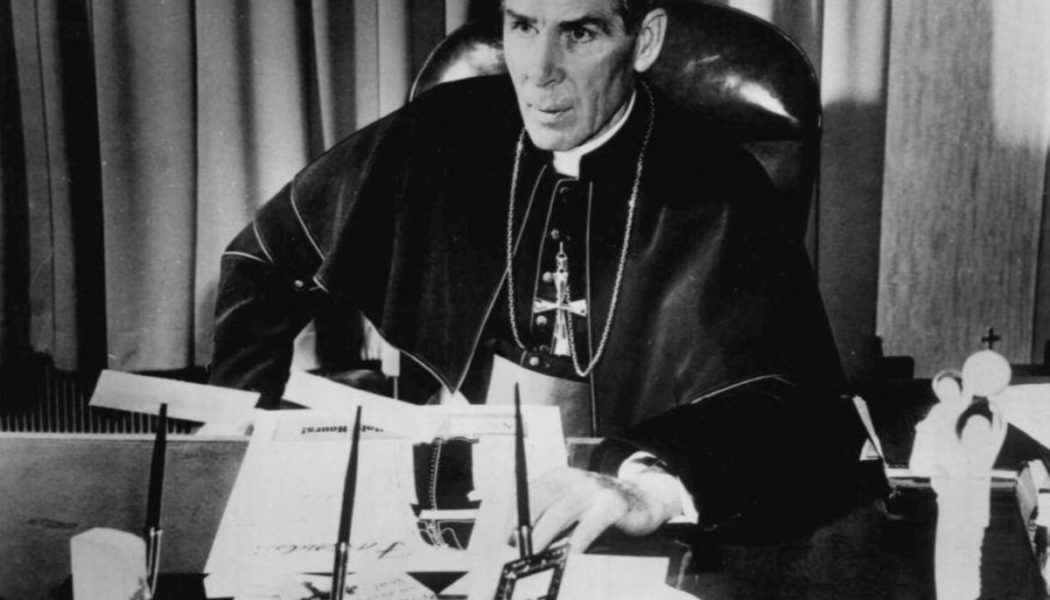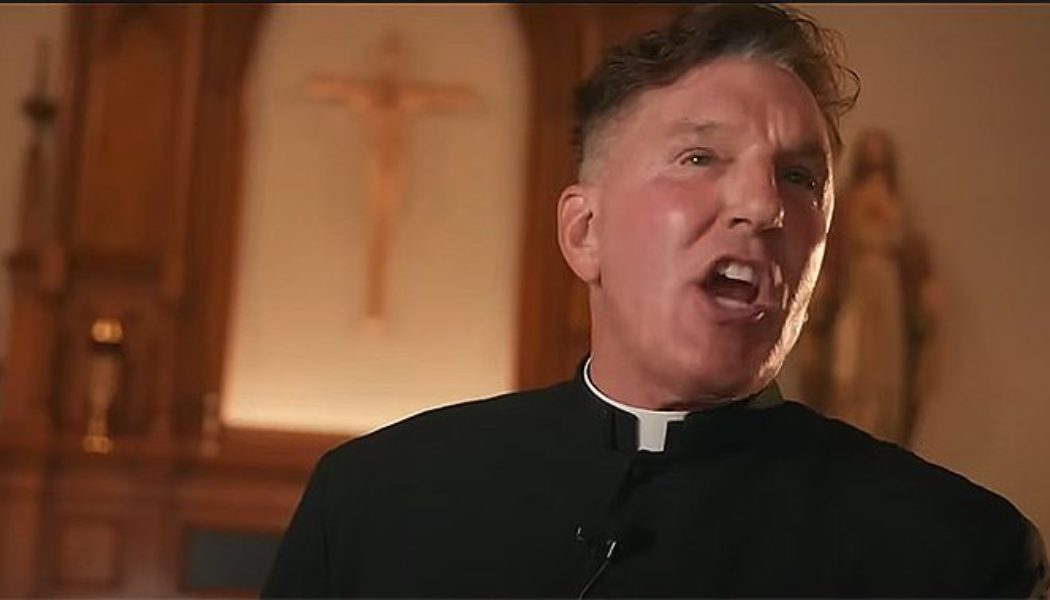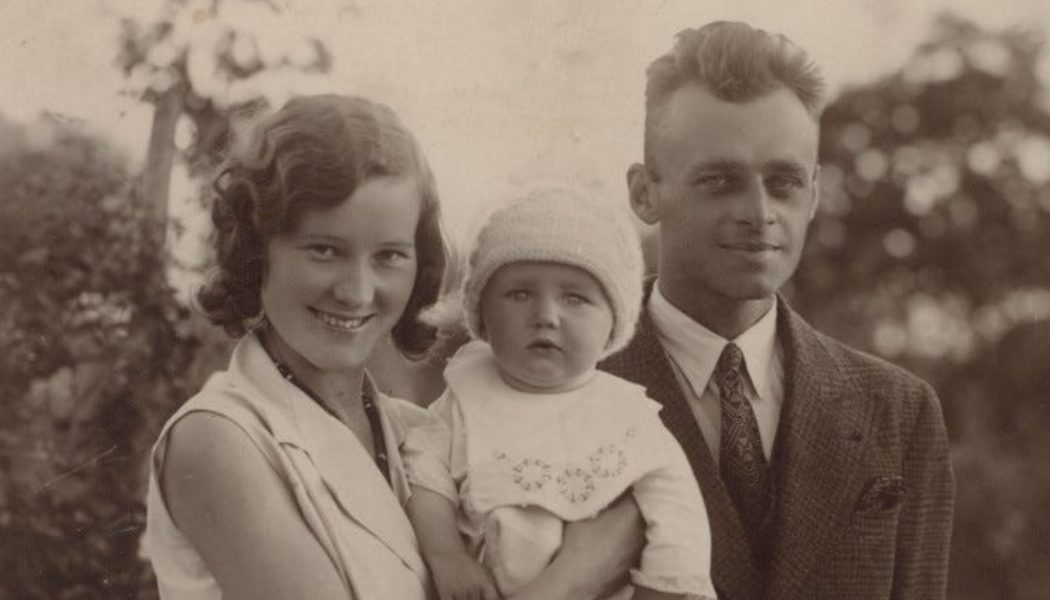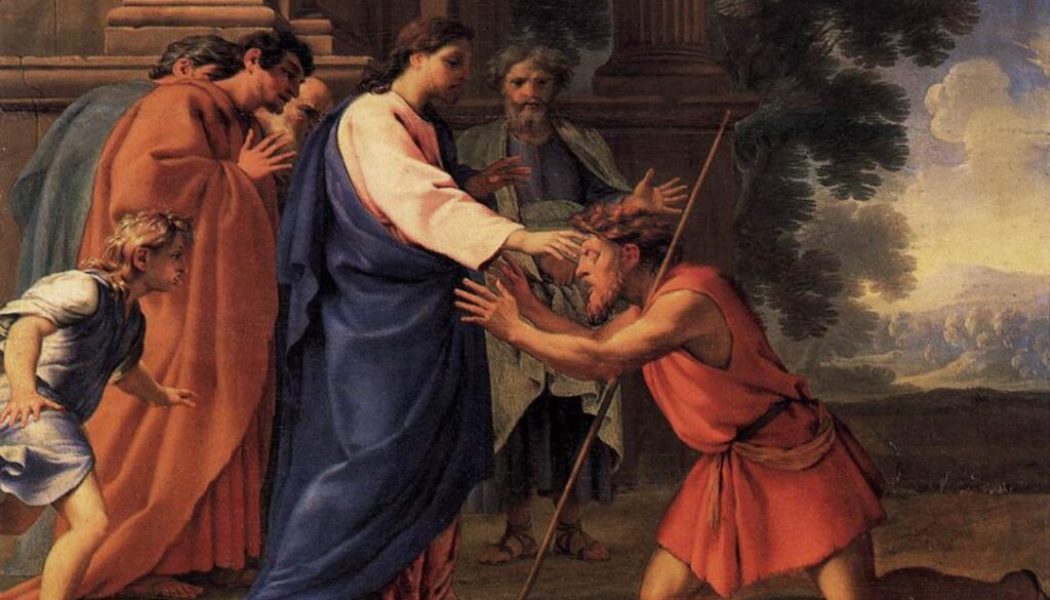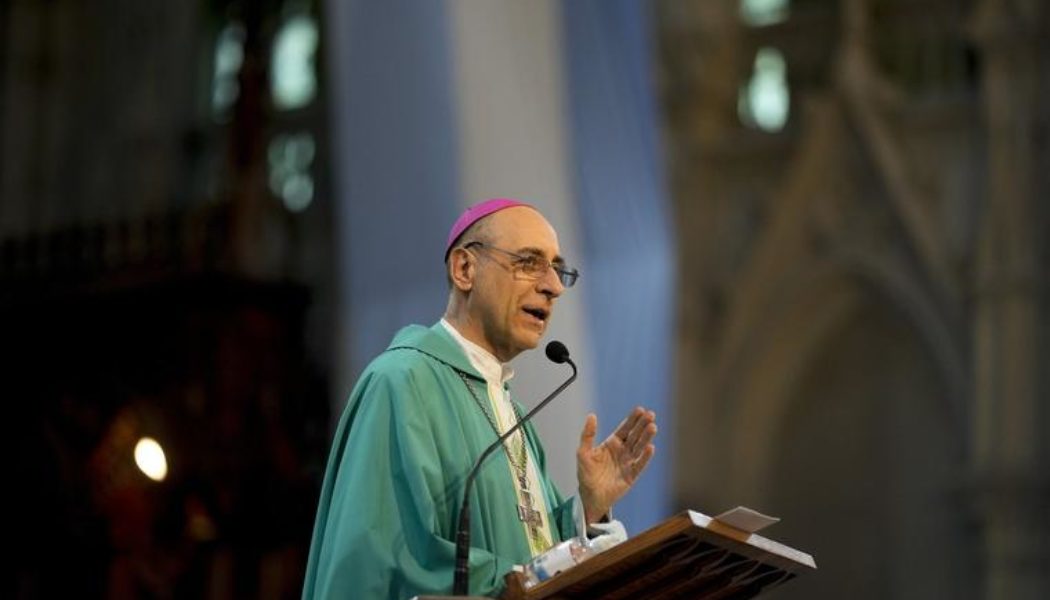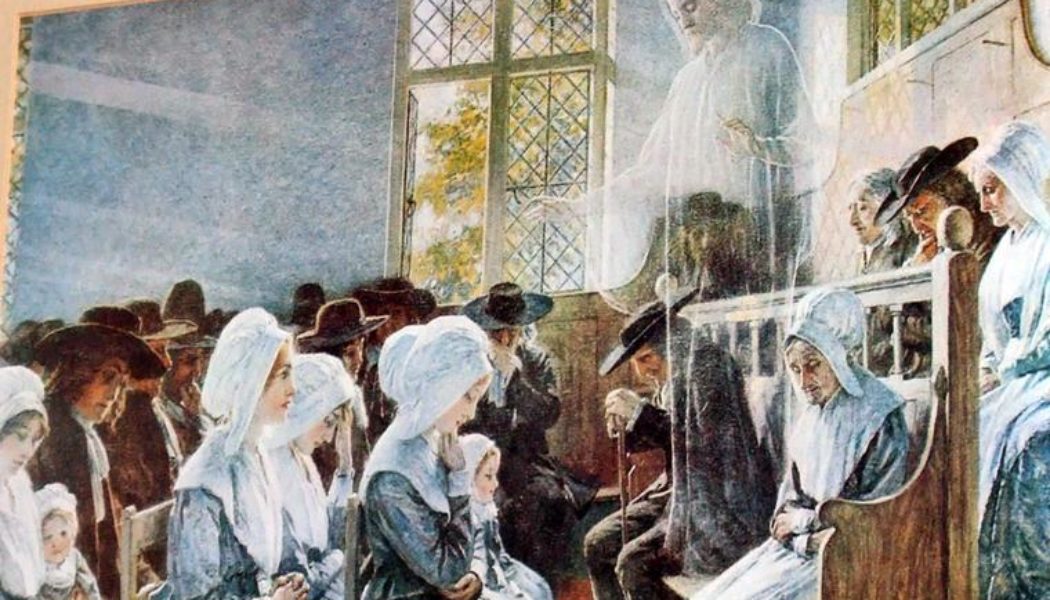Left
Archbishop Fulton Sheen’s 3 secrets to powerful preaching and evangelization…..
I previously outlined what might be considered the philosophy of education of Archbishop Fulton J. Sheen. That piece detailed some of the bishop’s impressive legacy and unpacked the philosophy that animated his teaching career and his commitment to Catholic education. Having looked closely at his principles, I would like to turn now to Sheen’s praxis. What follows will highlight three of Sheen’s pedagogical practices that made him an extraordinarily successful scholar and teacher and—if I may be so bold—the premier Catholic communicator of the American Church in the twentieth century. Believing firmly that we all have something to learn from the good bishop about teaching and handing on the faith, I hope what follows here serves as an opportunity for inspiration and reflection for tho...
On Christian Democracy and the Lost Tradition of Courtesy…
The young Catholic man criticized a woman he saw on the bus for looking “slutty,” and his disgust for her came through the way he described her. A friend asked him, “Is that the way a gentleman talks?” Clearly puzzled, he said, “I don’t talk that way about ladies, but she was no lady and doesn’t deserve the respect I give you.” My friend noted that this meant that any respect he gave her, and women in general, was conditional on their meeting his standard of perfection as a “lady.” Not that she was a daughter of Eve, as C.S. Lewis put it, a human being made in the image of God for whom the Son of God died. But that she was “a lady” by a young man’s personal definition. As I was writing this, I remembered that I once called a girl a slut, when I was 14 or 15, and both my parents...
On the illogic and insanity of sedevacantism…
Fr. James Altman seen giving a talk titled “Bergoglio is Not the Pope” (YouTube, Sept 8, 2023). (Image: Screen capture) By now it is common knowledge among Catholics who follow social media that the firebrand and rogue traditionalist priest Fr. James Altman has formally declared, in a video posted to YouTube, that Pope Francis is not really the pope and is in fact an anti-pope. This should come as no surprise since he said similar things at a conference for the so-called “cancelled priests” held in June of this year in Chicago. It is noteworthy that in attendance at the conference was a veritable “who’s who” assemblage of the leading lights of the radical traditionalist movement. Fr. Altman was applauded and cheered as a hero by those in attendance even if, to be fair, it canno...
Witold Pilecki spent 947 days as a prisoner in Auschwitz — and he was free on each and every one of them…..
Those who say that we’re in a time when there are no heroes, they just don’t know where to look. —Ronald Reagan The gate closed with a sickening metallic clang. The day had come. Tom was in prison. The first day in prison for a new inmate is never an easy one. The gate closes for the first time, and the world becomes infinitely smaller. Boundaries—vast oceans, roaring rivers, majestic mountains—now replaced by concrete walls, iron bars, and razor wire. No man ever feels the gate close behind him without asking himself, “what went wrong? How have I come to this place? What am I doing here?” Tom was in prison, but he didn’t ask himself those questions. He already knew the answers. “What went wrong?” Nothing. Everything was proceeding according to plan. “How have I come to this pl...
Will the Synod on Synodality follow Jesus as the Way to a true Catholic vision, or will it give us a substandard sociological substitute?
When I was asked to write about synodality for The Thomist, an academic journal, I tried to say no. I had not been avidly following developments, but I had noticed a lot of ersatz sociology, generally of poor quality, as well as a marked absence of the name of Jesus Christ. The editor prevailed, however, and, for my sins, I decided to take a fresh look at the topic. I took my starting point from the etymology of synod, as a way (hodos) that comes together (syn). As I explored the language of “way” in the Scriptures, I discovered some important guideposts for an understanding of synodality that rises to a truly Christian (as opposed to merely sociological) level. In this essay, I will summarize those guideposts. The most obvious referent for the word “way” is Christ Himself, who is “the Way...
“Down in Adoration Falling” — Our Grateful Response to God for the Most Holy Eucharist…
Objections to the practice of Eucharistic adoration have come to the fore once more in light of the concerted efforts for a Eucharistic revival in the United States. Recently, Eucharistic adoration has been described as passive in nature, yet I would argue that Eucharistic adoration is a form of devotion and piety that can assist in achieving the “aim to be considered above all else” set forth by the Second Vatican Council regarding the sacred liturgy: active participation. Adoration begins within the celebration of Mass, and Eucharistic devotion outside of Mass is always directed back towards the font of the sacred liturgy. Recent popes, including this past August, Pope Francis (see News & Views, page 1) have offered a consistent voice in favor of the renewal and promotion of the prac...
Confession is the only place in the world where we articulate our sins in secret and receive forgiveness with certainty…..
By Fr. Jerry Pokorsky ( bio – articles – email ) | Sep 11, 2023 During the Last Supper, Jesus consecrates the wine at the first Mass, forever linking the Eucharist to forgiveness: “And he took a cup, and when he had given thanks he gave it to them, saying, ‘Drink of it, all of you; for this is my blood of the covenant, which is poured out for many for the forgiveness of sins.’” (Mt. 26:27-28) Jesus provides a template for seeking reconciliation: “If your brother sins against you, go and tell him his fault, between you and him alone.” Present the evidence, and if he refuses to listen, escalate the matter to another witness or two and, if necessary, the Church (cf. Mt. 18:15-17). He adds: “Truly, I say to you, whatever you bind on earth shall be bound in heaven, and whatever you ...
Exclusive: Archbishop Fernandez Warns Against Bishops Who Think They Can Judge ‘Doctrine of the Holy Father’…
VATICAN CITY — The incoming prefect of the Dicastery for the Doctrine of the Faith has warned that bishops — both “progressive” and those from “traditionalist groups” — who think they have a “special gift of the Holy Spirit to judge the doctrine of the Holy Father” are on a road to “heresy” and “schism.” Speaking in response to a question on accepting Pope Francis’ magisterium, Cardinal-designate Archbishop Víctor Manuel Fernández told Register senior correspondent Edward Pentin in an exclusive Sept. 8 email interview that the Pope not only has a duty to guard and preserve the “static” deposit of faith, but also a second, unique charism, only given to Peter and his successors, which is “a living and active gift.” “I do not have this charism, nor do you, nor does Cardinal [Raymond] Bu...
What do we know about Catholics United for Life and New Hope’s St. Martin de Porres Community, which was called a “cult” by a California news outlet?
NBC’s news story about the suits was shared on social media by the law firm Jeff Anderson & Associates, which has positioned itself as a premier filer of sex abuse lawsuits against religious entities. It was not immediately clear whether attorneys for the Minnesota-based Anderson & Associates filed the lawsuits in question. What is Catholics United for Life? Catholics United for Life (CUFL) is a ministry of the St. Martin de Porres Lay Dominican Community, which is part of the Lay Fraternities of St. Dominic’s Eastern Province. Reached by phone, a representative of New Hope Publications, the Dominican community’s main ministry, agreed to pass CNA’s comment request to the appropriate person, but the call was not returned by press time. According to the grou...
Defense of Pius XII reflects concern that Francis could be styled ‘Putin’s Pope’…
ROME – Yesterday Crux carried two stories which, at first blush, appear unrelated. The first concerned the latest Ukrainian backlash against Pope Francis’s praise of “Great Mother Russia,” while the second covered the discovery of a previously unnoticed bit of anti-fascist graffiti from the WWII years in the Vatican’s Secretariat of State. Yet pushing beyond the headlines, the two stories do actually have something in common: To wit, they point to mounting concern among Pope Francis’s advisers and allies that just as his predecessor Pius XII has been pilloried as “Hitler’s Pope,” something similar could befall Francis down the line vis-à-vis Vladimir Putin. (For that matter, the same accusation can, and has, been lodged against Francis with regard to Chinese Premier Xi Jinping, but that’s ...
‘Where Two or Three Are Gathered, I Am in Their Midst’…
Today’s Gospel makes two major points: the need for fraternal correction and the communal context of prayer and salvation. Jesus speaks about how to correct a brother. Before we even look at Jesus’ three-step process for fraternal correction, let’s first consider the concept of spiritual admonishment. We should consider it because it may seem alien to some modern ears. In saying how to correct a brother who wrongs you, Jesus clearly assumes that there is right and wrong and that someone can do the latter. He also assumes that the other brother recognizes there is right and wrong and that someone is committing the latter. It is not “judgmental” to recognize that there is right and wrong and that people do both. And it is not “judgmental” or even “hypocritical” to point that out. Rather, the...
Like Gentiles or Tax Collectors…
23rd Sunday in Ordinary TimeBy Fr. Victor Feltes Jesus teaches us today about how to practice fraternal correction. In short, if a brother or sister in the Church sins against you, approach him or her privately. If that fails to persuade, come again with one or two others. If that does not work, bring the matter to the Church. And “if he refuses to listen even to the Church,” Jesus says, “then treat him as you would a Gentile or a tax collector.” Jesus says to treat an obstinately unrepentant Christian like “a Gentile or a tax collector.” What are we to make of this? How would the Jewish crowds hearing Jesus’ preaching treat Gentiles or tax collectors? The Old Covenant kept Jews and Gentiles (that is, non-Jews) separate. For example, archeologists have found stone signs from the Jewish tem...
